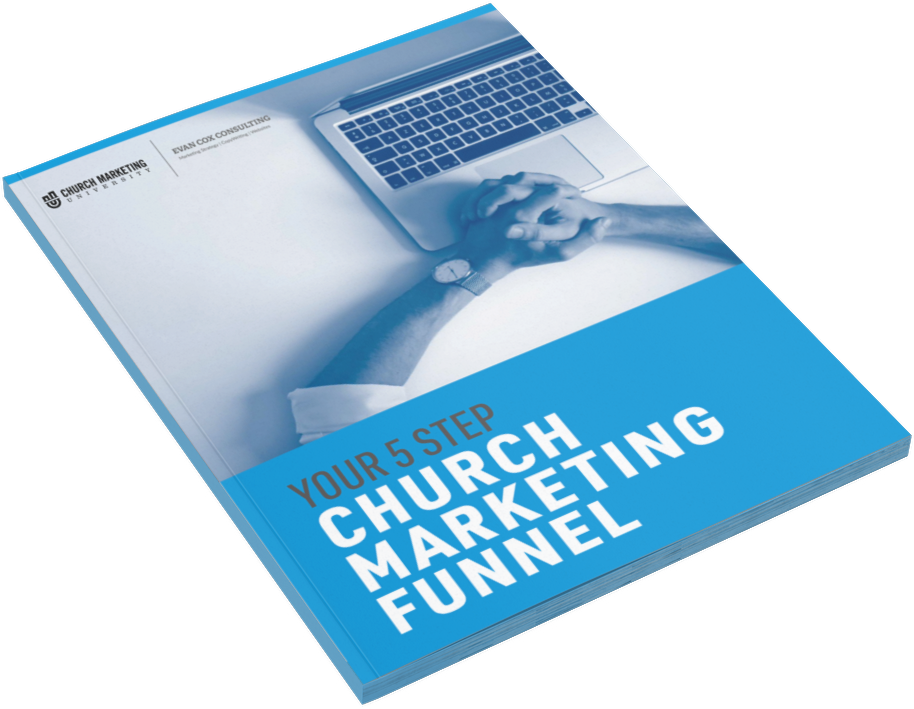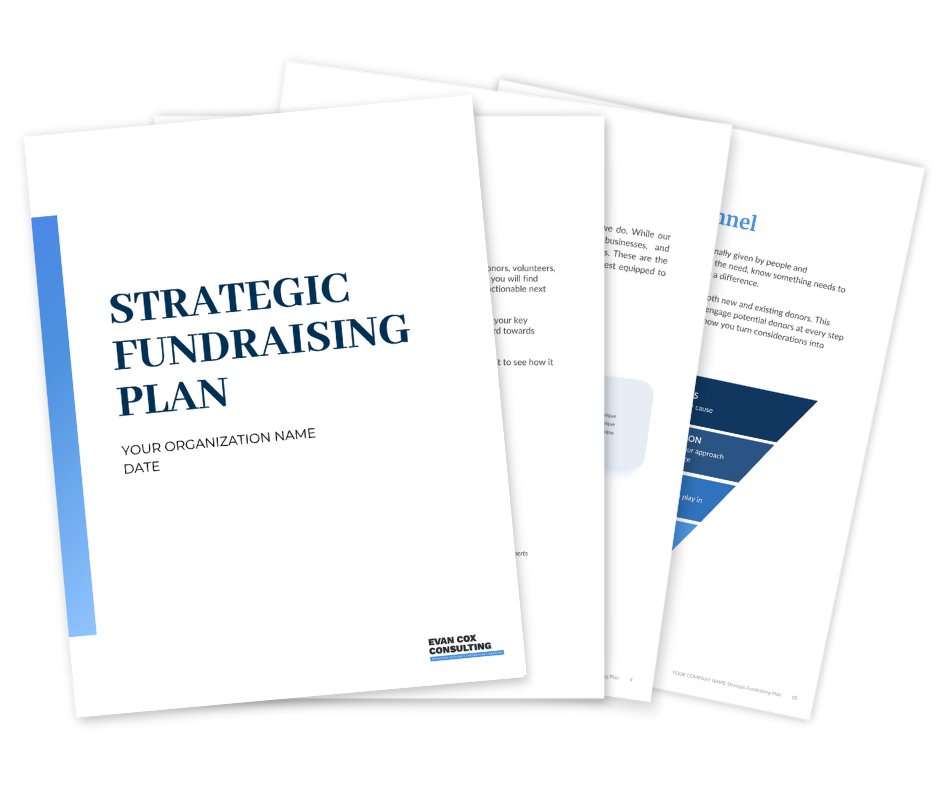Nonprofits and mission-driven organizations are built to make a difference. Yes, you need to be sustainable—but your bottom line isn’t solely about profit. The impact is your most important metric.
Whether you provide clean water, help refugees, or serve low-income communities, your cause matters to you, your team, and your donors.
Unfortunately, the nonprofit executives and leaders we talk to have mixed feelings about marketing and fundraising. Global nonprofits with large staffs have dedicated specialists for marketing, communications, and fundraising efforts. Grassroots nonprofits, however, often struggle to find the bandwidth to take on these important pieces of running their organization. Both need clarity.
Enter the StoryBrand framework. It’s a marketing and messaging approach created by Donald Miller to help you speak with each of your audiences in a way that positions them as the hero, and you as their guide. Every donor, volunteer, and staff member is on a journey. They care about the work you do because it solves an inherent problem they have.
Let’s explore how you can use the power of StoryBrand to elevate the important work you do and increase your impact.
Step #1: Write a compelling brand story
Your individual story matters, and so does your nonprofit’s story. Humans are wired to lean in and listen to a compelling plot.
The unique element of running a nonprofit or church, though, is you’re not just telling one story. You’re writing, sharing, and creating unique storylines, experiences, and outcomes for everyone you serve.
Consider this: your major donors care about your cause and partner with you because you help solve a problem they can’t tackle on their own. They want to see change. You help make that possible for them. If you provide food for the hungry, those people waiting in line don’t want impact or a legacy. They want a hot meal and a plan to make their lives better.
This is the power of StoryBrand. You aren’t resigned to just sharing one story. In fact, the more you curate how you talk about the problems you solve, the more engaged each of your target audiences becomes.
The two types of nonprofit BrandScripts
StoryBranding your nonprofit should include creating a BrandScript to map out 7 unique elements of your story. Unlike corporate companies or B2C brands, you must consider creating a mission and donor-based BrandScript.
Mission-Based BrandScript – This brand story speaks directly to the recipients of your service. If you tutor children, this style of story speaks directly to the wants, needs, problems, and challenges of those families. For example, you might outline that one of their external problems is a lack of access to education.
Donor-Based BrandScript – This brand story style speaks to the people who make your mission possible (i.e. donors, volunteers, grant foundations, etc.). In their case, they don’t have a problem with education. Perhaps, though, their problem might be a lack of time to help directly or even a lack of expertise on how to best tutor elementary school children.
Both BrandScript styles are important tools in your marketing arsenal. Whether you scribble it down on a piece of paper, jot it down in Evernote, or even use this free tool, the first step to building a StoryBrand is to create a BrandScript.
Outline your charity’s story by filling out descriptions for each of the 7 parts of the framework covered above. This will be the building block you need to create a whole host of other marketing materials.
Additional Resource
Read How to Build Your StoryBrand
StoryBrand is a powerful messaging framework developed by author and business leader Donald Miller. The premise is that you and your organization need to offer solutions to your customer’s problems. When you clearly articulate your products and services as the answer they’ve been searching for, your business or nonprofit grows in the process.
Step #2: Build a compelling, story-based nonprofit website
Whether you’ve read Building a StoryBrand by Donald Miller, listened to the connected podcast, or are just learning about the StoryBrand framework for the first time, the power comes in implementation.
Once you have a compelling brand story (your BrandScript) outlined, it’s time to take action and infuse it into all your marketing and fundraising efforts:
- Social media
- Email marketing
- Mailers and print
- In-person meetings
- Webinars
- Website
- and more…
When it comes to your website, most nonprofit founders and directors aren’t happy with their most important digital assets. Their site may not work properly, accurately convey what they do, or bring meaningful results.
Here’s the thing: most nonprofit websites are accidentally built backward. Someone decides to DIY, hire a cousin, or outsource to someone they know…and it normally starts with choosing a fancy layout that looks pretty.
Your website should look great, but that’s not the first step to creating a healthy, optimized website. With a BrandScript in hand, we begin with the words first. The content you create (also known as copywriting) should speak to the wants and needs of each target audience you serve.
Quick Reminder: your donors don’t just fund the work. Serving them is meaningful and equally as important as the primary cause you care about.
The 3 steps to creating a StoryBranded nonprofit website
Step 1: Start with a coherent strategy and the right message
Step 2: Get the words right (write copy specific to your readers)
Step 3: Then, pull everything together with dynamic design
Ready to do a deep dive into this StoryBranded website process? Check out our podcast episode that breaks down how to build your website the right way.

The Ultimate List of StoryBrand Nonprofit Websites
In today’s digital age, a website is often the first impression volunteers, donors, and community members have of your nonprofit organization. Unfortunately, grassroots nonprofits often face limited budgets, a never-ending to-do list, and so many other factors that push their leaders to prioritize other initiatives over their websites.
Step #3: Deploy a marketing or fundraising funnel
Regardless of who you serve, we want to make your job easier. Not only should marketing and fundraising drive bottom-line results for your organization, it should also not feel like a manual push.
Enter the third step — creating and deploying a sales funnel. Now, many NGO leaders understandably balk at the idea of doing sales, so we refer to this instead as a marketing, fundraising, or donor funnel.
The basic idea here is first to acknowledge that any of your audiences are on a journey (remember, this is story-based). And, as with any journey, no one is always ready to take action. It’s our job to provide content that answers their questions, addresses their concerns, and invites them to take action.
A StoryBranded-marketing funnel is a key element of your communications strategy. This funnel lives on your website and invites readers to exchange their email addresses for something of value (i.e. an assessment, devotional, quiz, helpful guide, or even template). This allows you to begin building trust via story-informed automated and manual emails.
The key here is value. A marketing funnel isn’t a transactional process designed only to get a quick donation. No. A nonprofit’s marketing funnel is an opportunity to spread awareness about your cause, grow your audience, and build relationships that are mutually beneficial.
We break down exactly how to create a marketing funnel in 5 steps right here.

Attention churches and faith-based nonprofits
We serve all kinds of nonprofit organizations, including many churches and faith-based institutions. Yes, your work is very nuanced, but StoryBrand still works for you too.
In fact, it’s why we created a specific resource for church leaders called Your 5 Step Church Marketing Funnel. Get the guide and use the power of story to start new relationships so your church can reach more people.
Step #4: Create a strategic fundraising plan
While it’s true that every organization has to find a way to keep the lights on—the practice of fundraising extends way beyond asking for money or covering costs. Fundraising, at its core, is an act of service on behalf of your donors. It’s an invitation to make a difference and help them transform alongside the people and communities you help.
Unfortunately, fundraising can feel like a necessary evil for many executive directors, volunteers, and board members. Yes, donors matter, but the sooner we can return to the primary job, the better.
As covered earlier, donors represent far more than just money or funding potential. When you understand that you’re helping solve an important problem for them too, they become an integral part of your team.
Still, the challenge remains that you have limited time, capacity, and resources. It’s not easy to dedicate time communicating with donors. That’s exactly why our team created a done-for-you strategic fundraising plan.
It’s the template you need to identify your most important fundraising goals and how to accomplish them.

Create and implement a strategic fundraising plan with ease
Establish a plan to effectively raise more money for your nonprofit organization
StoryBrand nonprofit case study: WayPoint Ministry
Waypoint Ministry is a Christian residential program in Dahlonega, Georgia for men struggling with addiction. See what was done to help Waypoint Ministry further its mission to serve men struggling with addiction through a brand new website and fundraising strategy that delivered over $90k in their annual fundraising campaign.
StoryBranding your nonprofit enables you to do more good
There is no shortage of benefits to StoryBranding your nonprofit organization. It will inspire donors, rally staff, and equip you with the talking points needed to simplify your marketing, communications, and fundraising efforts.
If you’re still wondering how to make the most of StoryBrand for your charity, we can help. We’ve helped over 150 organizations walk through this framework, clarify their message, build a dynamic website, and infuse this powerful framework throughout their marketing and fundraising work. We can do the same for you too.
Let’s spend 15 minutes unpacking your priorities and talking through a game plan to you StoryBrand your nonprofit with confidence.Schedule a Consultation


